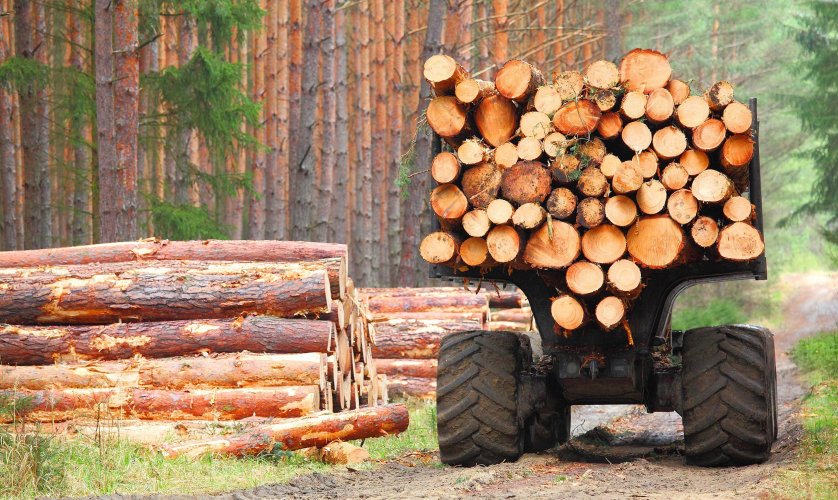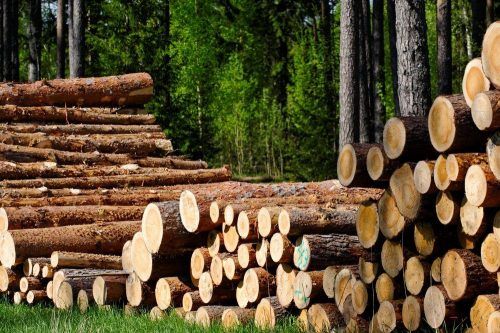The Government of Ukraine has changed a number of rules on the special use of forest resources, in particular, introduced the concept of “logging for research purposes”.
The innovations are enshrined in Resolution No. 721 “On Amendments to Certain Resolutions of the Cabinet of Ministers of Ukraine on the Special Use of Forest Resources” dated 18.06.2025.
The changes in the legislation were analyzed by experts of the Ukrainian Nature Conservation Group (UNCG). During the public discussion of the draft resolution, they submitted their comments to it.
The experts divided the innovations into 4 groups. They are as follows:
1. Commission surveys.
- Commission surveys remain mandatory for logging that is not planned in forest management materials. But for sanitary felling, they are no longer required – only surveys within the requirements of the Sanitary Rules remain.
- A new requirement: permanent forest users – i.e., the State Enterprise “Forests of Ukraine”, municipal forestries, national parks, etc. – must report such inspections on their websites 10 days before the inspection.
- In addition to foresters, the commissions must include representatives of nature reserve fund institutions within the administrative-territorial unit. The authors of the resolution did not specify what to do if there are several such institutions within the same region or district (as, for example, in the Carpathian region).
- If they wish, members of the public can participate in the surveys. Decisions will be made by voting, by simple majority.
- Re-forming felling, firebreaks, and the formation of fire-resistant stands can only be carried out on the basis of forest management materials. This requirement remained as it was before, but an exception was made for forest roads for 2 years.
Pros:
- Now information about the surveys will be published on websites;
- the commissions will include not only foresters.
Cons:
- the decision is made by a simple majority.
"Therefore, even if the public and representatives of the NRF (nature reserve fund – ed.) are against it, foresters will still be able to get what they need through. For example, the construction of new forest roads in the highlands of the Carpathians or the swamps of Polissia," the UPG explains.
2. Research logging.
- For scientific purposes, it is now allowed to carry out logging with deviation from the requirements of the law.
- However, they cannot be carried out within protected areas, virgin forests, and especially protected areas.
- The implementation of such works must be accompanied by scientific institutions within the scope of scientific research. There is also an area limit of no more than 0.5% of the total area of a single forestry.
- The State Forestry Agency will publish research plans for such logging on its website.
According to experts, such “scientific” logging is still needed in the face of climate change. They cited the example of the former Teteriv forestry, which successfully experimented with thinning.
However, the URF warned that in practice, the goals of such logging can be very far from science. For example, on the basis of the justification of scientists from Lviv Forestry University, massive thinning operations were carried out in the natural mixed forests of the Carpathians, the group members say.
“Therefore, there is a huge risk that under this pretext foresters will simply cut down where other types of logging are prohibited or restricted, for example, in high mountain forests,” the experts emphasized.
3. Regulate the issue of preparatory work for logging.
- The terms “logging site”, “skid trail”, etc. were introduced into Ukrainian legislation.
- The authors of the document also detailed the procedure for felling, which is preparatory work for other felling, such as felling trees on future felling areas, trees that could harm loggers, clearing technological passages for machinery, etc.
- These types of work will not be allowed in specially protected areas and on the territory of protected areas.
Experts say that all of these activities have been carried out before, but were not clearly regulated at the regulatory level.
“It is important that foresters do not start abusing and cut down more forest during the ”preparatory“ work than during the logging for which this ‘preparation’ was done,” the UHF noted.
4. Introduce the possibility of inspecting the sites before issuing logging tickets.
- Representatives of the territorial bodies of the State Forestry Agency will be able to visit the sites and verify the accuracy of the information in the documents submitted for logging tickets.
- If they find any discrepancies in quality (for example, beech in the documents, but oak in reality) or quantity (inadequate area or wood stock), they will be able to refuse to issue logging tickets.
"We need a change, because in fact, before, officials who issued logging permits had to believe what was written in the documents. Now, if they wish, they can officially stop abuses. If the State Forestry Agency has such a desire, of course," experts believe.
- Lifting the ban on final acceptance of gradual felling in beech forests. The UHF noted that in the absence of snowy winters, this rule has partially lost its relevance. According to experts, it is more problematic to conduct the final acceptance of gradual felling without preliminary acceptance.
- Unblocking the possibility of cutting down trees during geological exploration and pilot industrial mining, if such activities are carried out on the basis of an agreement. This provision, according to experts, resolves the inconsistency between the felling rules and the Land Code.
“It is now even more important to prevent the issuance of new permits for the extraction or geological exploration of widespread minerals in forests,” they emphasized.
General assessment of the Cabinet of Ministers Resolution No. 721
The UPG experts believe that this document “does not contain much good for nature protection, but the adopted version is much better than what foresters originally proposed.” They thanked the Ministry of Environmental Protection and Natural Resources of Ukraine for taking into account the most critical part of the comments submitted by the group members.
“The mechanisms of public influence were left in place,” the OPG stated.
As a reminder, EcoPolitic wrote in early March, when the draft resolution No. 721 was made public, that experts urged the government not to approve a new type of logging for research purposes.





